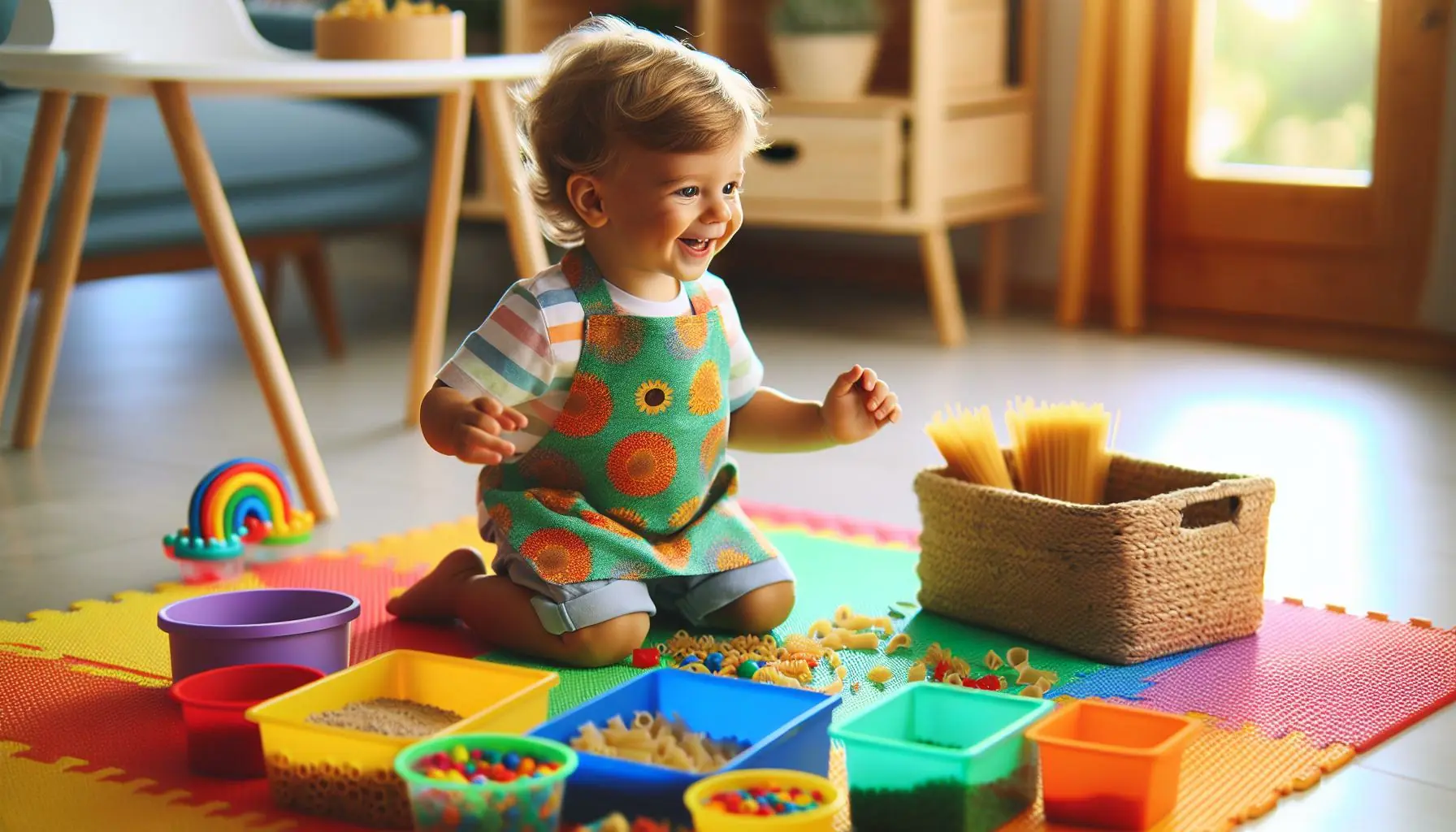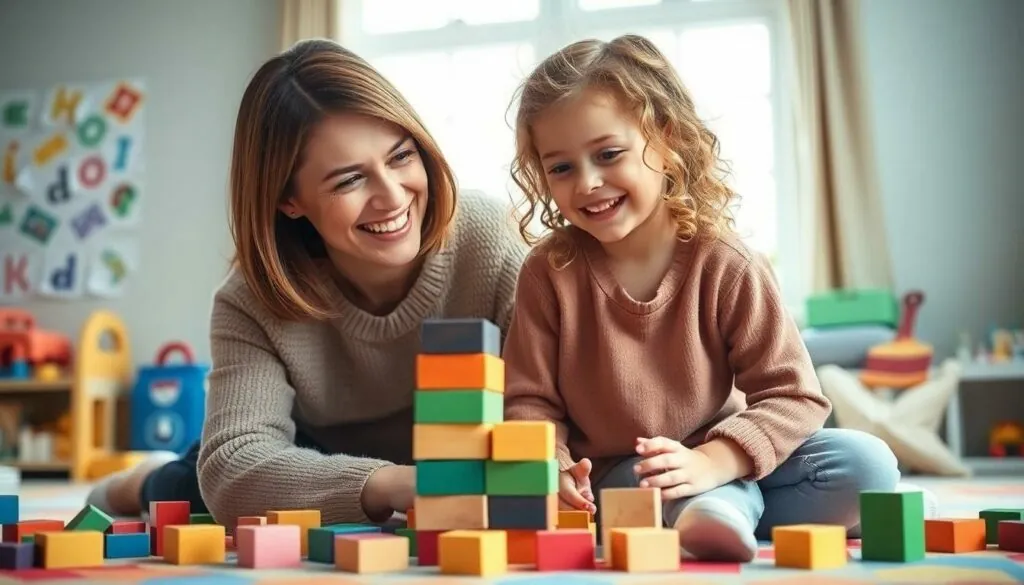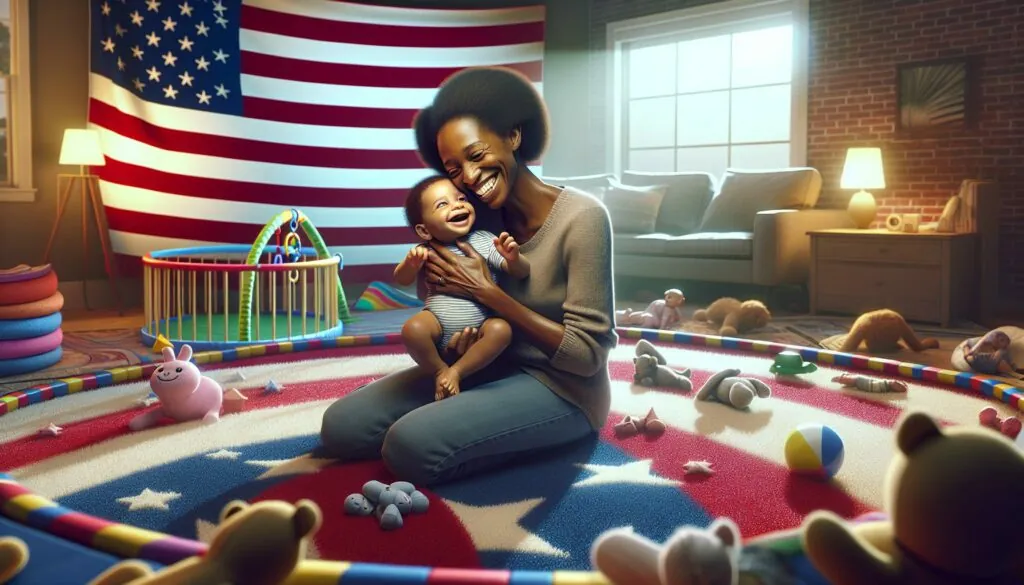Table of Contents
ToggleAs a parent of two energetic toddlers I know firsthand how challenging it can be to keep little ones entertained throughout the day. That’s why I’ve spent countless hours exploring and creating fun DIY activities that not only keep my kids engaged but also support their development.
I’ve discovered that the most effective toddler activities don’t require expensive materials or complicated setups. With just a few household items and some creativity you’ll find endless possibilities for learning and play. From sensory bins filled with dried pasta to homemade playdough adventures these simple activities have become lifesavers in our daily routine.
Key Takeaways
- DIY toddler activities promote essential developmental skills including fine motor, cognitive, language, and social abilities while keeping costs minimal
- Common household items like kitchen supplies (rice, beans), recyclables (boxes, containers), and natural materials (leaves, rocks) can create engaging activities at little to no cost
- Sensory play activities such as color mixing experiments and textured bins offer multi-sensory learning experiences that stimulate development through hands-on exploration
- Creative art projects and indoor movement games can be easily set up using basic supplies, helping channel energy while building gross motor skills and imagination
- Kitchen-based activities and playdough creation provide safe, hands-on learning opportunities that teach basic cooking concepts and measurement skills
- Outdoor DIY activities like nature scavenger hunts and water play stations offer cost-effective ways to combine physical activity with educational experiences
Benefits of DIY Toddler Activities
DIY toddler activities create opportunities for learning through play while keeping costs minimal. These hands-on experiences promote essential skills development in multiple areas.
Developmental Skills
DIY activities enhance fine motor development through tasks like pinching dried beans sorting colored pom-poms. My toddlers strengthen their cognitive abilities by matching shapes problem-solving puzzles organizing objects by size. These activities boost:
- Hand-eye coordination through activities like threading pasta necklaces
- Language development by naming objects colors during sensory play
- Social skills via cooperative projects like collaborative art
- Emotional regulation through calming activities like water play
- Problem-solving abilities with shape sorting discovery bottles
- Memory retention using matching games flash cards
- Kitchen supplies: measuring cups rice beans pasta
- Recyclables: cardboard boxes paper towel rolls containers
- Craft basics: construction paper glue child-safe scissors
- Natural items: leaves rocks pine cones sticks
- Household goods: cotton balls buttons fabric scraps
| Item Type | Average Cost | Potential Activities |
|---|---|---|
| Kitchen Supplies | $5-10 | 15+ activities |
| Recyclables | $0 | 10+ activities |
| Craft Basics | $15-20 | 20+ activities |
| Natural Items | $0 | 8+ activities |
Sensory Play Activities
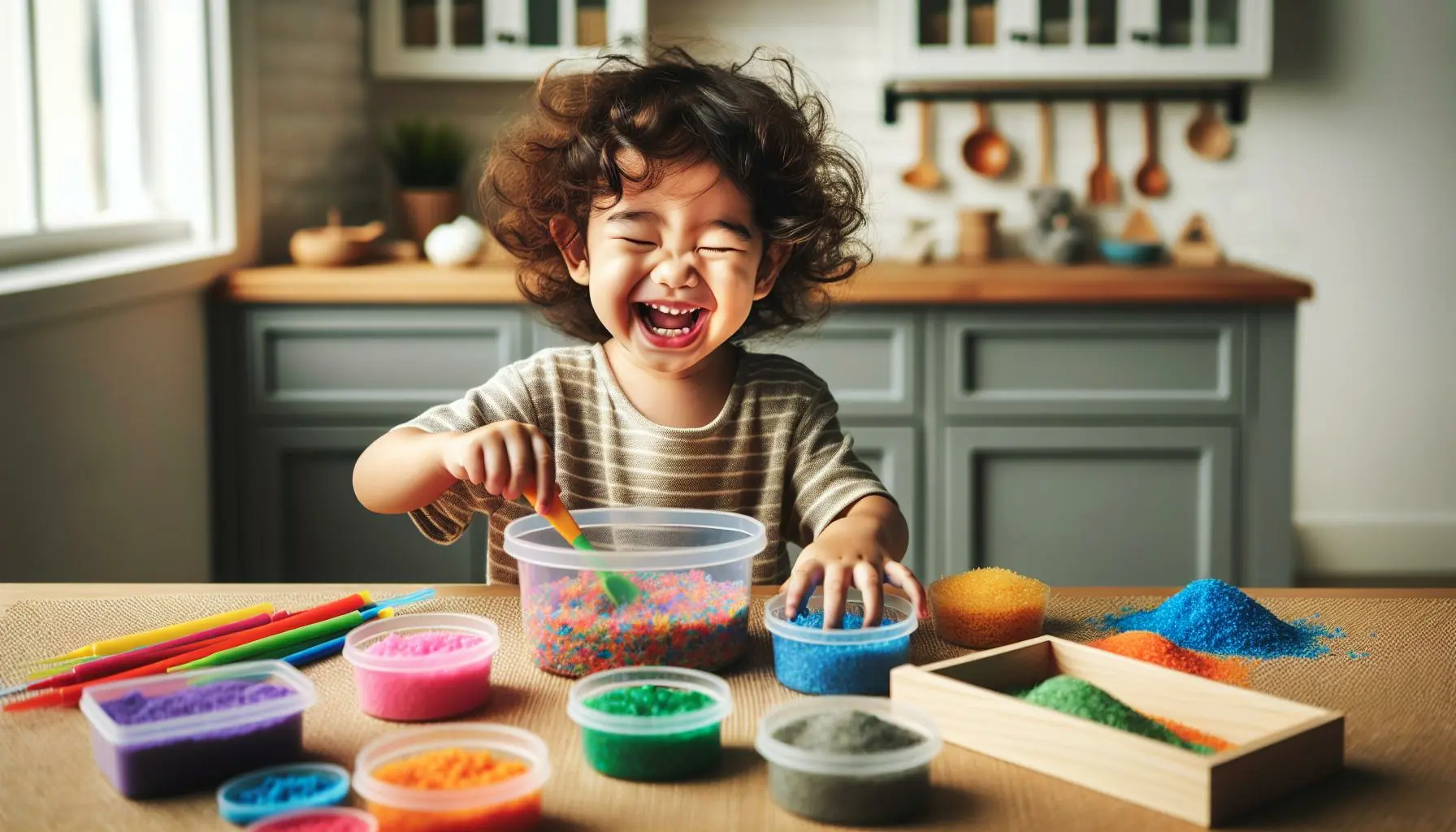
Sensory play engages multiple senses through hands-on exploration with different textures, colors, sounds, or scents. I’ve created these activities using everyday items from my home to stimulate my toddlers’ sensory development and cognitive growth.
Color Mixing Fun
Color mixing experiments transform ordinary activities into exciting learning experiences. I fill clear plastic bottles with water and food coloring, creating primary color stations. My toddlers combine different colored water in clear containers, discovering new shades through:
- Squeezing colored water from pipettes into empty containers
- Mixing colored shaving cream with plastic spoons
- Blending colored rice in zip-lock bags
- Swirling colored ice cubes in warm water
Textured Sensory Bins
Sensory bins offer tactile exploration through various materials with different textures. I create themed bins using:
- Dried beans with measuring cups for scooping
- Rainbow-colored pasta with sorting bowls
- Kinetic sand with cookie cutters
- Water beads with plastic containers
- Rice with funnels for pouring
| Material Type | Suggested Quantity | Storage Life |
|---|---|---|
| Dried Beans | 4 cups | 6 months |
| Pasta | 3 cups | 3 months |
| Kinetic Sand | 2 pounds | 12 months |
| Water Beads | 1/2 cup dry | 2 weeks |
| Rice | 5 cups | 6 months |
Creative Art Projects
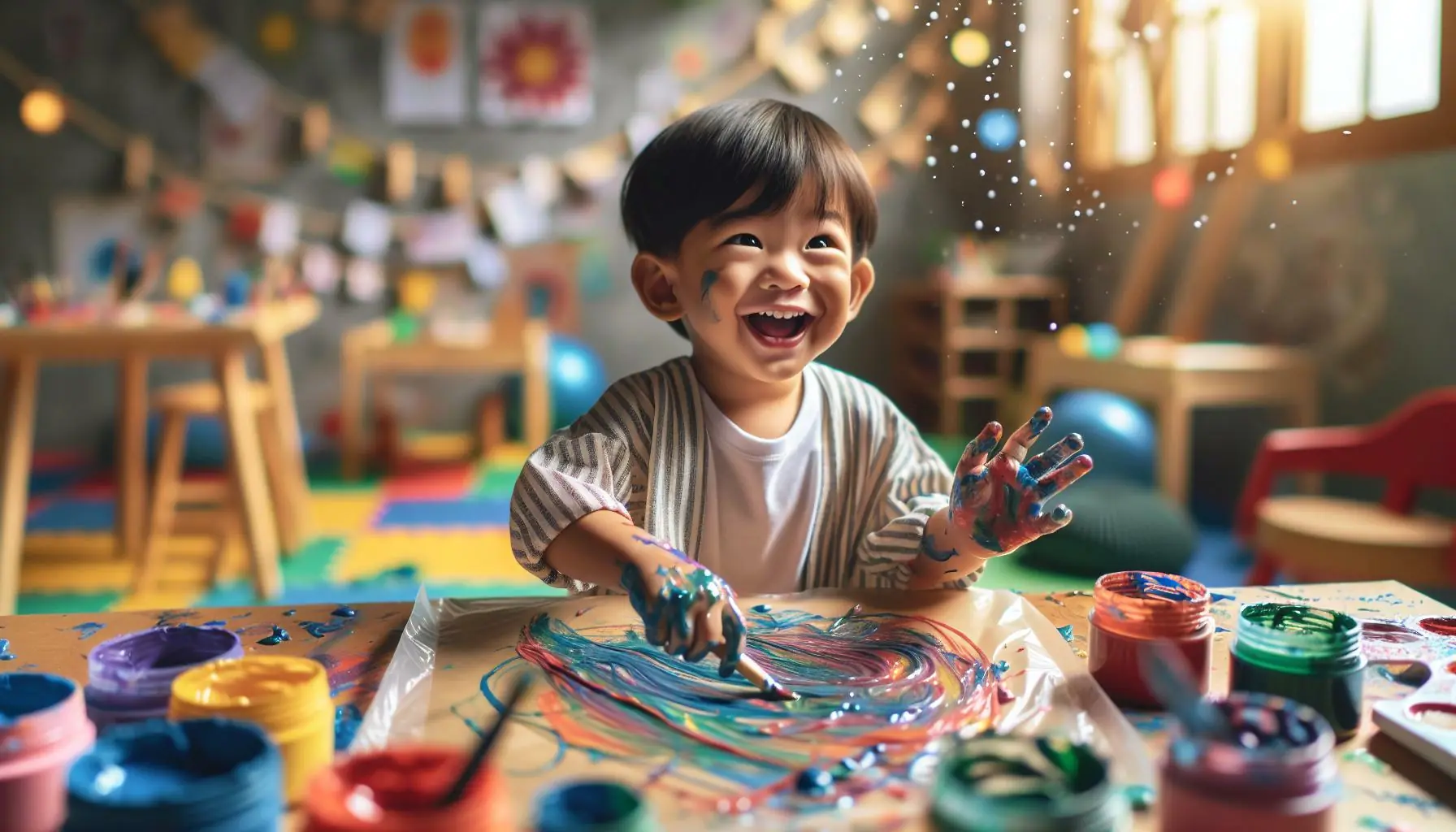
Creative art projects offer toddlers exciting opportunities to explore their imagination while developing fine motor skills. I’ve discovered these activities create meaningful learning experiences with minimal supplies.
Finger Painting Ideas
My most successful finger painting activities use edible ingredients like yogurt or pudding mixed with food coloring. Here are effective approaches I’ve tested:
- Paint with colored yogurt on wax paper to create swirl patterns
- Mix pudding with different food colors for taste-safe finger painting
- Create handprint art using washable tempera paint on butcher paper
- Combine cornstarch with water colors for textured paint effects
- Use cotton balls dipped in paint for mess-free painting alternatives
| Safe Paint Ingredients | Mixing Ratio | Storage Life |
|---|---|---|
| Yogurt + Food Color | 1/2 cup + 3-4 drops | 1 day |
| Pudding + Food Color | 1 cup + 5-6 drops | 2 days |
| Cornstarch Paint | 1/4 cup + 2 tbsp water | 3 days |
- Glue tissue paper squares on contact paper for window decorations
- Create collages using magazine cutouts sorted by colors
- Stack colored paper circles to form caterpillars
- Make paper plate masks with craft stick handles
- Thread large beads onto pipe cleaners for jewelry making
| Craft Supply | Average Cost | Projects per Pack |
|---|---|---|
| Contact Paper | $5.99 | 15-20 crafts |
| Paper Plates | $3.49 | 25-30 crafts |
| Pipe Cleaners | $2.99 | 35-40 crafts |
Indoor Movement Games

Indoor movement games transform everyday spaces into active play zones for toddlers, promoting physical development while channeling endless energy. I’ve discovered these activities create perfect opportunities for gross motor skill development during weather-restricted indoor days.
Dance and Music Activities
My toddlers respond enthusiastically to these music-based movement activities:
- Create freeze dance parties using upbeat children’s songs
- Follow simple movement songs like “Head Shoulders Knees & Toes”
- Use rhythm instruments (shakers, drums, bells) during dance time
- Play musical cushions (safer version of musical chairs)
- Dance with colorful scarves or ribbons to enhance movement
- Incorporate counting songs with corresponding actions
| Activity Supplies | Average Cost | Duration of Use |
|---|---|---|
| Rhythm instruments set | $15-20 | 12+ months |
| Dance scarves (6-pack) | $8-12 | 18+ months |
| Children’s music subscription | $5-10/month | Monthly access |
- Place pillows as stepping stones
- Create tunnels using blankets draped over chairs
- Stack empty boxes as climbing challenges
- Line masking tape on floor for balance beams
- Roll exercise balls between designated points
- Position hula hoops as target jumping spots
| Obstacle Elements | Setup Time | Skills Developed |
|---|---|---|
| Pillow pathway | 2-3 minutes | Balance coordination |
| Blanket tunnel | 5 minutes | Spatial awareness |
| Tape course | 3-4 minutes | Linear movement |
| Box obstacles | 5-7 minutes | Climbing ability |
Learning Through Play
Learning through play transforms everyday activities into educational experiences for toddlers. I’ve developed engaging methods that combine entertainment with essential skill development using simple materials.
Number Recognition Activities
I create interactive counting games using household items like buttons cereal pieces. Here are 3 effective number activities:
- Place numbered paper cups in a row with pom-poms for sorting quantities
- Draw numbered parking spots for toy cars matching numbers 1-5
- Set up counting stations with rice bins labeled with numbers
These activities cost $8-15 for materials including paper cups pom-poms markers. Each setup takes 5-10 minutes to prepare stays engaging for 20-30 minutes.
Letter Learning Games
Letter recognition becomes fun through hands-on activities with everyday materials. Here are 4 proven letter games:
- Hide magnetic letters in a sensory bin for letter hunts
- Create letter roads with masking tape for toy car driving
- Match uppercase lowercase foam letters in water play
- Form letters using playdough snakes
| Material | Average Cost | Activities Created |
|---|---|---|
| Magnetic Letters | $12 | 8-10 games |
| Foam Letters | $8 | 5-6 activities |
| Letter Cards | $6 | 4-5 games |
| Masking Tape | $4 | 6-7 activities |
Each activity maintains engagement for 15-20 minutes promotes letter recognition through tactile exploration. I rotate these games weekly to keep learning fresh exciting.
Kitchen-Based Activities
Kitchen activities transform everyday cooking spaces into engaging learning environments for toddlers. I’ve discovered these activities enhance fine motor skills while introducing basic cooking concepts.
Safe Cooking Projects
Toddlers develop measuring skills through hands-on kitchen activities that require minimal preparation. Here are 5 safe cooking projects:
- Mix fruit smoothies by adding pre-cut fruits into a blender
- Layer yogurt parfaits with granola berries in clear cups
- Spread peanut butter on rice cakes then add banana slices
- Roll cookie dough into balls using child-safe utensils
- Decorate pre-baked cookies with sprinkles frosting
| Activity | Prep Time | Engagement Time |
|---|---|---|
| Smoothies | 5 min | 10-15 min |
| Parfaits | 5 min | 15-20 min |
| Rice Cakes | 3 min | 10-15 min |
| Cookie Rolling | 8 min | 20-25 min |
| Decorating | 5 min | 15-20 min |
Playdough Creation
Homemade playdough offers a sensory-rich experience while teaching basic kitchen measurement concepts. Here’s my tested 3-ingredient recipe:
- Mix 2 cups flour 1/2 cup salt 1.5 cups warm water
- Knead ingredients until smooth
- Separate into portions
- Add food coloring to each portion
- Keep in airtight containers
- Store at room temperature
- Replace after 3 months
- Add 1 tablespoon vegetable oil if dough becomes dry
| Ingredient | Amount | Cost |
|---|---|---|
| Flour | 2 cups | $0.50 |
| Salt | 1/2 cup | $0.25 |
| Water | 1.5 cups | $0.00 |
| Food Coloring | 5-10 drops | $0.50 |
Outdoor DIY Activities
I’ve transformed my backyard into an engaging learning space with these cost-effective outdoor activities that keep my toddlers entertained for 30-45 minutes per session.
Nature Scavenger Hunts
My toddlers explore the outdoors through guided scavenger hunts using picture cards of common natural items. I create durable hunt cards by laminating printed images of leaves, rocks, sticks, flowers, pinecones for $3. Each hunt includes 5-6 items to collect in a decorated paper bag, maintaining focus for 20 minutes. The collected items become materials for follow-up crafts like leaf rubbings or rock painting.
Water Play Ideas
I set up water-based learning stations using recyclable containers filled with 2-3 inches of water. My favorite setups include:
- Pouring station with measuring cups ($2) connecting volume concepts
- Floating objects test using household items (cork, metal spoons, plastic toys)
- Water painting on concrete using large brushes ($4)
- Bubble station mixing 1 cup dish soap with 6 cups water
- Ice cube color mixing with food coloring ($3)
Each water activity incorporates small containers, cups or funnels ($5 total) for enhanced motor skill development. I place a large beach towel ($8) under containers to manage spills, creating a defined play space.
| Water Play Setup | Cost | Duration | Materials Needed |
|---|---|---|---|
| Pouring Station | $7 | 25 min | 4 containers, cups |
| Bubble Station | $4 | 20 min | Soap, wands, tray |
| Paint Station | $7 | 30 min | Brushes, containers |
| Ice Activities | $5 | 15 min | Trays, food color |
Creating engaging DIY activities for toddlers doesn’t have to be complicated or expensive. I’ve found that the most successful activities often come from simple household items and a dash of creativity. These activities have transformed my daily routine with my toddlers into opportunities for learning and bonding.
Whether you’re mixing colors exploring sensory bins or building obstacle courses the key is to keep things fresh and exciting. I encourage you to start with one or two activities and gradually build your collection of DIY games. Remember it’s not about perfection – it’s about creating meaningful moments that support your toddler’s development while having fun together.
Trust me when I say the joy on your toddler’s face will be worth every minute spent preparing these activities. Now it’s your turn to dive in and discover the endless possibilities of DIY toddler play!

